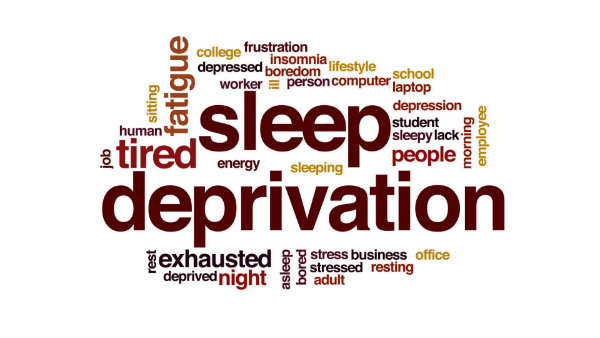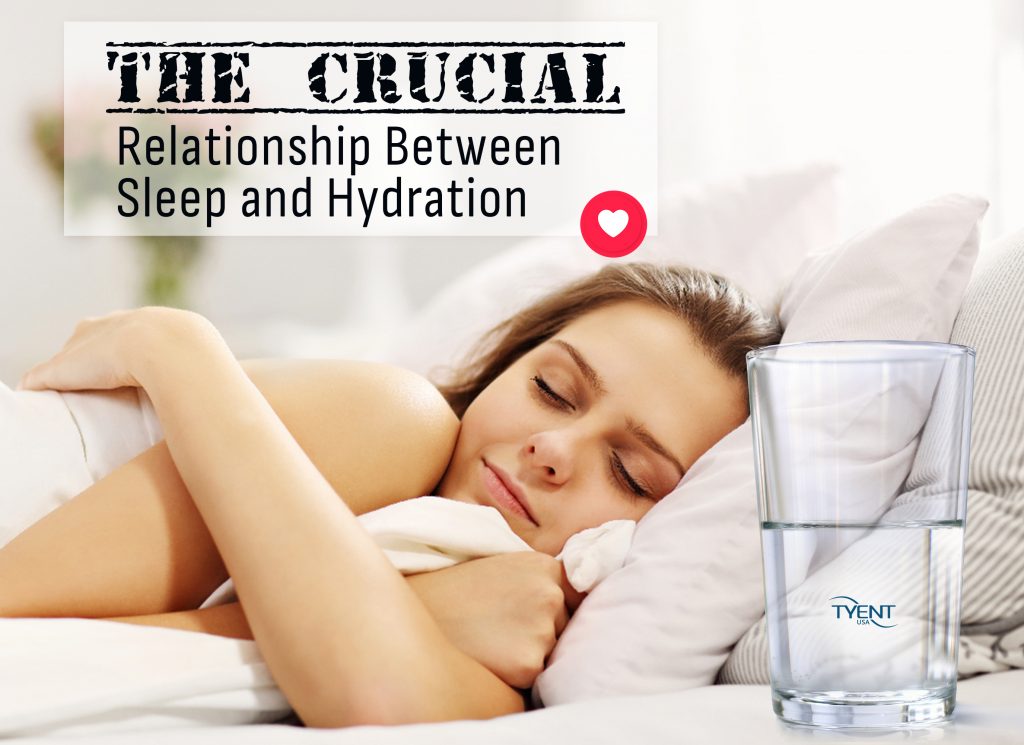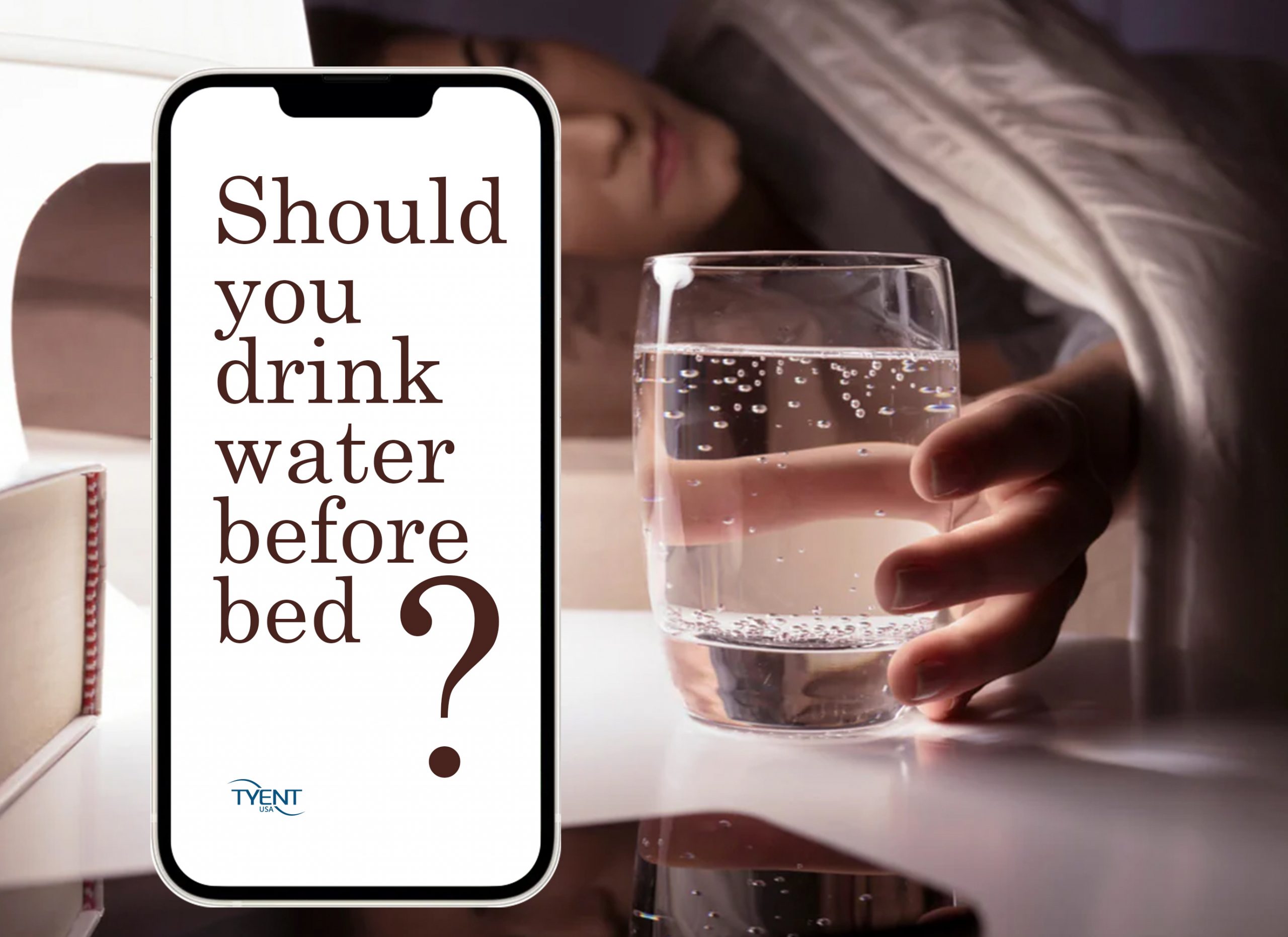Everyone gets a bad night’s sleep now and then. But, did you know that every time you get less than seven hours of sleep, you enter a state of sleep deprivation?
The less rest you get, the more severe the effects of sleep deprivation become.

While some of the symptoms of sleep deprivation are obvious, there are other symptoms that you may not have considered. The good news is that improving your sleep environment and sleeping habits can help you get the rest you need!
What Does Sleep Deprivation Look Like?
Some signs of sleep deprivation are obvious like sleepiness, fatigue, and frequent heavy blinking, while other symptoms like appetite changes are more difficult to recognize.
A few symptoms of sleep deprivation that you may not have considered include:
Weight Gain: Sleep plays a role in the regulation of hunger and satiety hormones. When you’re sleep deprived, your body releases more ghrelin, a hunger hormone, and less leptin, a satiety hormone. Increased appetite is accompanied by cravings for sugary snacks and high-fat foods that give the reward center of your brain an extra boost during sleep deprivation.
Moodiness and Irritability: Emotional control and stability take a big hit when you’re tired. The amygdala, which processes emotions, becomes more sensitive to negative thoughts and feelings. Simultaneously, the prefrontal cortex, which applies higher reasoning and executive functions to your feelings becomes less active. The increased sadness, anger, and irritability can interfere with your professional and personal relationships.
Increased Clumsiness and Injury: Neurons in the brain slow down their messages when you’re fatigued. Also, the brain doesn’t get the time it needs to cleanse, prune, and strengthen itself when you’re not getting enough sleep. You’re left with a delay in thinking skills, reasoning abilities, and reaction times, which can cause clumsiness, injury, or even death if you drive while drowsy.

Making Changes for Better Sleep Health
Poor sleep can stem from many causes such as an overload of stress or a medical condition.
No matter the reason, there are habits and behaviors you can develop to up your chances of getting a full seven to nine hours of sleep.
Supportive Sleep Environment: Everything in your bedroom should support healthy sleep from the bed to the room temperature and lighting. The best mattress for you should support your preferred sleep style—back, stomach, side—while being comfortable for your height and weight. Keep the room cool and, at night, block out as much light as possible.
Keep a Consistent Sleep Schedule: The human body will adjust to a regular sleep schedule, which can help correctly time the release of sleep hormones. Your body will love you even more if you keep the same sleep schedule on the weekends too, eliminating sleep debt come Monday morning.
Develop a Calming Bedtime Routine: Bedtime routines serve a dual purpose: 1) They help the brain recognize when to start releasing sleep hormones, 2) Provide an opportunity to reduce tension and stress before bed.
Proper Hydration and Smart Nutrition: Staying well hydrated may prevent daytime fatigue, so you’re not tempted to take a long nap. A well-balanced diet keeps everything from your heart to your digestive system healthy. However, you’ll need to be smart with both hydration and nutrition. Too much liquid close to bedtime can cause frequent sleep interruptions that wake you up to go to the bathroom, and foods that are high in fat that are eaten before bed can lead to uncomfortable indigestion.

Where Do I Go from Here?
If you’re experiencing the ongoing symptoms of sleep deprivation – small daily changes can give you big-time results. One of these small changes can be to incorporate Tyent alkaline water into your daily routine.
Tyent alkaline water helps promote better sleep and focus because our alkaline water contains essential minerals that your body needs – calcium, potassium, zinc, and magnesium.
Tyent alkaline water is also more hydrating than regular tap water because of the molecular hydrogen that our award-winning water ionizers can produce. Drinking hydrogen water is the best way to stay hydrated because the small hydrogen bubbles in the water are small enough to penetrate your cells directly.
If you would like to learn more about how a water ionizer machine can help you sleep better and improve your health – our FREE Water Ionizer Cheat Sheet and these water ionizer reviews are perfect for you to reference!
You can also give us a call sometime at and one of our alkaline water experts will gladly assist you with any questions that you may have about our water ionizers.
With consistent effort, you can get the rest you need and start feeling better within a few days!
Sweet dreams!









It’s very hard to keep a consistent schedule if your work hours aren’t consistent. 🙁 But maybe having a bedtime routine would help me.
Hi, Hector. We totally get your worries. You can always take one small step at a time to develop better habits no matter your work hours. Having a routine – and, as the article says, drinking our alkaline water every day – should make the rest of these tips easier for you to follow over time.
Okay, so how much water should we drink before heading to bed?
Hi, Jacqueline. Depending on your body and how much water you can consume without needing to go to the bathroom, you can drink about a glass to a glass and a half of alkaline water before bed. If you want to play it safe, half a glass could do, as well.
We can talk to you about this over the phone, if you’d like, so feel free to call our water experts at 855-893-6887.